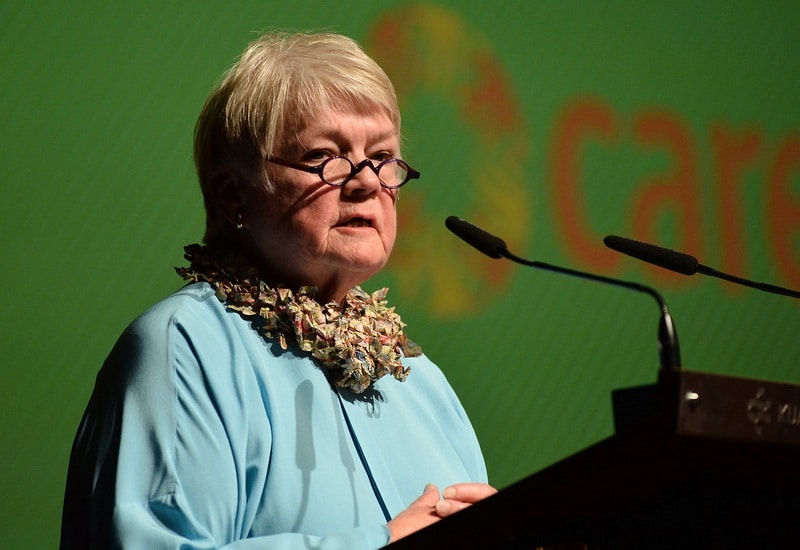
COPENHAGEN, Denmark (WOMENSENEWS)—The “Women Deliver” conference, a major recurring global gathering on reproductive and sexual health, has been criticized in the past for tip-toeing around the issue of abortion.
Not so this year.
At the conference taking place here, organizers are including a session called “The Elephant in the Room: What About Abortion?” during the May 16 – May 19 meeting.
“It’s impossible to holistically address the health, rights and wellbeing of girls and women without discussing abortion and women’s right to choose,” Katja Iversen, CEO of Women Deliver, told Women’s eNews in an email interview ahead of the conference. “In countries with restrictive abortion laws, unsafe abortion is a public health challenge that must be addressed.”
Another highlight of the conference, which is expected to attract 5,000 policy makers, lawmakers and advocates from 150 countries, will be the launch of Maverick Collective, a philanthropic initiative, co-chaired by Melinda Gates and Mette-Marit, crown princess of Norway. Its members (currently all women) have each committed to at least $1 million, as well as time and effort, to help solve critical challenges facing girls and women in the global south.
The McKinsey Global Institute will also be presenting a discussion paper that builds on its global report last year about the rich rewards economies could reap by narrowing the gender pay gap.
The conference paper will look at the societal dimensions of the gender gap and the financing required to address them.
In April, the institute released deep-dive reports including one for the United States and India.
In the United States report, authors target “impact zones” for narrowing the gap, including reducing the amount of time women spend on unpaid care work, preventing teen pregnancy and bolstering political representation.
Anu Madgavkar, a McKinsey Institute partner, will be at the conference.
Adding $12 Trillion by 2025
“Our previous research found that if every country bridged its gender gap at the same historical rate as its fastest-improving regional peer, the world could add $12 trillion to annual GDP in 2025,” Madgavkar said in an email interview. “At the Women Deliver conference we’ll release new research that provides an initial road map for action and social spending required to achieve the economic potential of women.”
That win-win theme of boosting national economies by closing gender gaps will intersect with various panels attentive to gender-responsive budgeting that makes the best use of domestic resources and international public finance.
One panel, for instance, will be on the role of philanthropy in ensuring enough resources to implement the Sustainable Development Goals, or SDGs, a broad package of commitments that world leaders made last September at the U.N. to bring poverty-eradication efforts in line with protecting the environment and bolstering human rights.
Another panel will be on the increased representation of women in the workforce.
These discussions come at a pivotal moment as the conference marks the first major development gathering on maternal, sexual and reproductive health since world leaders endorsed the SDGs.
Throughout the four days, various sessions will focus on ways to ensure that girls and women are equal partners in setting the sustainability agenda and how best the SDG framework can be leveraged to advance health, rights and wellbeing of girls and women.
Organizers hope that the conference, while helping participants to forge partnerships and coalitions and raise money, will be focused on solutions.
“Solutions are at the very heart of Women Deliver 2016,” Iversen, the CEO of Women Deliver, said. “Gone are the days of talking about the ‘if and when.’ It’s time to change the conversation to ‘how and now.’ And remember: solutions can come from anywhere; any country, any age and any background. Attendees will return home with smart solutions that they can scale within their communities and countries.”


